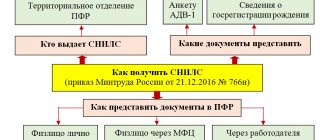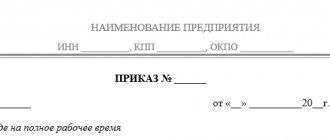Prescribing tests
This form of testing allows you to quickly examine the qualities of many candidates and compare them with each other. A pre-employment test achieves several goals:
- exclude the influence of personal sympathies or negative attitudes of the recruiter;
- weed out candidates who are definitely not suitable for the job;
- select people who are most suitable for specific tasks based on their psychological make-up.
In some cases, such tasks are required. For example, a test for admission to the civil service is designed to study a citizen’s level of knowledge about current legislation.
Detected parameters
Employee testing allows you to:
- obtain information about the level of knowledge in a specific area;
- get an idea of intellectual development;
- draw up a psychological portrait of the candidate;
- determine whether a person has leadership qualities;
- find out motivation and life priorities;
- find out whether a person is able to quickly make adequate decisions in non-standard situations.
Pros and cons of the technique
The main advantage of testing is obtaining an objective assessment of a person’s knowledge, his personal qualities, and his ability to solve practical problems with a limited amount of time. Based on the test results, the HR specialist operates not with subjective impressions, but with numerical indicators, which makes it possible to compare different candidates.
There are several negative aspects when using this selection method:
- The scope of use is limited. It is advisable to use interview tests when hiring an employee with a clear list of competencies. Such positions are typical for large organizations where responsibilities are divided between departments. In small companies, formal selection is more likely to hurt.
- Results may be distorted. Many tasks used for testing when applying for a job are available on the Internet.
- Difficulty of interpretation. The manager wants to get a universal answer to the question of whether a person is worth hiring. For the personnel officer, positive results will be an absolute advantage of the candidate, and negative results will be grounds for refusal.
How to approach tests when applying for a job?
Currently, two approaches to conducting preliminary testing of applicants are widely practiced:
- online testing for employment, which the candidate takes remotely;
- testing directly in the company’s HR department before or after an oral interview.
In the first option, you are sent an email with a link to a closed page on the company or HR agency website and your personal login and password. You are given several days (2-7) to take the test using the link provided. You can take the test at any time convenient for you on your home computer or in a place convenient for you. It is worth noting that in order to double-check the result obtained from such testing, you may be asked to take another 2-3 control tests directly in the presence of an HR specialist or a representative of the employer.
The second approach to conducting testing is in the company's HR department before or after the interview. In this case, you are tested together with other applicants on a computer and in a room provided by the employer.
What both approaches have in common is that before the testing session begins, you will be told the exam requirements, provided with a sample task and instructions for each type of test. You will then be given a long multiple choice questionnaire and given a specific time limit. You are NOT expected to answer all questions thoughtfully and within the given time limit. After all, 1 question on a job application test usually takes 60-90 seconds, and it’s usually impossible to complete it in that time. But this should not upset you!
A large number of questions in the test are deliberately designed to assess how well you cope with a stressful situation. Additionally, this strategy tests your accuracy and speed of thinking. In some questions it can be very difficult to find the right solution. In that case, don't spend too much time on them. Just skip them if possible and come back to them later after finishing the rest of the test. Keep in mind that it is not the speed, but the correctness of testing that matters when summing up the results and helps HR specialists assess your potential. Assessment tests are usually structured in such a way that the level of difficulty increases from start to finish.
How testing is carried out
The person is invited to the next stage of the interview, given a questionnaire, a sheet with tasks, and the rules for working with the test are explained. The candidate for the position answers the questions immediately and then submits the job. The HR specialist monitors the progress of the test.
If space permits, computer technology is used. For testing, a special program is used where tasks are loaded. The applicant selects answer options and enters them into the computer. The result is saved in the program.
What specialties are used for hiring?
According to the law, for those working in conditions of increased danger, and those whose activities are associated with increased danger, a mandatory psychiatric examination is carried out at least once every 5 years.
Moreover, the list of these professions is quite impressive. And it even includes those who, at first glance, are peaceful, such as cleaners and, for example, canteen workers. Although it is quite logical - what if they start rinsing a doormat in a tea cauldron.
They will reveal it at least once every five years. What can we say about military professions, special units, etc. We only know from hearsay what tests they are put through there. And rightly so, national security comes first. But this is psychiatry. What about psychological tests?
If previously the company tested mainly middle and senior managers and the security service, now they even test couriers. First of all, there’s no point in sitting HR’s pants down. And secondly, due to the increasing frequency, especially in the West, of cases of mass murder of employees, and quiet, calm colleagues, it is better to overpay for testing than to launder the company’s reputation.
The workers themselves are also interested in testing, provided that it is carried out by a professional and the result is not hidden. They are especially willing to do so if they promise a bonus or promotion. But what if not? They take you away from work, force you to answer some nonsense, and even start pushing you out of the organization.
A natural question arises: does the employer have the right to conduct tests? “Everything that is not prohibited is permitted,” says the basic democratic maxim. And according to it, the employer has the right to arrange any tests, incl. psychological – there is no direct prohibition.
Another question is whether the employer can refuse employment or fire based on the test results?
The Labor Code of the Russian Federation has a rather vague formulation of a legal refusal: “In connection with the employee’s business qualities.” But it also contains an indication of the required documents, which does not indicate the presence of a certificate with the test results.
The only required honey. conclusion - medical examination by a psychiatrist. And although dismissal/refusal due to a failed psychological test can be challenged in court, you are unlikely to work there for long. And do you need such an organization?
Categories of tests for employment
Research is divided according to the subject of study. Tests can be aimed at studying a person’s personality and his way of thinking.
Other assignments are designed to teach job skills. For example, a test for knowledge of Excel functions will allow you to avoid a situation where a person is already registered as an employee, but needs to undergo additional training.
Psychological personal
The purpose of the tasks under consideration is to test a person’s motivation and study his behavior style.
When hiring senior or middle managers, the Professional Personality Questionnaire is used. The results will indicate the candidate’s behavior pattern, his style of working with subordinates, and will allow you to understand whether such a boss is worth hiring for the team. To work in the Ministry of Internal Affairs, a person must pass such a test. It is necessary to exclude persons prone to suicide, depressive disorders, and highly susceptible to the influence of other people. The psychologist’s job is also to prevent people with corruption motivations from entering the workforce.
The most popular test is Ketell's 16 personality factors. A person is asked more than 180 questions, and the answer is chosen from 3 options. Based on the research, we can draw a conclusion about the personality of the candidate. For example, you can identify a person with inflated self-esteem, dependence on the opinions of others, too trusting, etc.
Psychological tests during hiring allow us to weed out people who will not be able to get along in a team. Mutual understanding in the team, the atmosphere among employees is as important as the amount of remuneration.
The Best Job Interview Tests
If most HR managers do not have any particular problems during an interview, assessing personal business qualities requires a lot of effort and often the results will not always be sufficiently objective. Therefore, in order to assess a person’s personal qualities as accurately as possible, many HR managers use psychological tests. You must adhere to two conditions in order to get the maximum effect: the test must be selected to assess those qualities that are necessary to work in your company and it must exclude as much as possible the possibility of socially desirable answers.
1. CAT test
Used to assess the candidate's intellectual abilities (analysis, flexibility and speed of thinking) and adaptability. The test subject is offered 50 closed questions to answer; the candidate is given 15 minutes. Advise him not to spend a lot of time thinking about one issue for a long time; if there is time left, he can return to it. The candidate is given a sheet with tasks, after the end of the time the results are assessed. The more correct answers, the higher the level of mental abilities, the faster the candidate will be able to adapt to the conditions of this position. Pros: the CAT test is time-tested and does not require large time or material costs. Disadvantages: a low result on this test must be double-checked by other methods, since it may be due to a misunderstanding of the instructions or non-compliance with the testing conditions.
2. Test to determine motivation for success
It can also be used in the selection of sales managers, marketers, sales agents and other specialists whose type of activity is aimed at a specific result. The candidate is offered 41 closed questions, he needs to choose one of the answers yes or no. Questions can be found at the link: https://www.all-tests.ru/test/test-na-opredelenie-stepeni-motivacii-k-uspehu. Pros: this technique can be automated and is carried out online, which will save time during the interview. Disadvantages: There are questions that require socially desirable answers and this may affect the results. Warn the candidate that he must be honest if he wants to receive an objective assessment.
3. Potemkina test
This questionnaire allows you to evaluate a candidate according to 4 main parameters of his activity: process - result, freedom - power. The test will be useful in the selection of almost all specialists, since each position involves activity either on a result (sales manager, recruiter, developer, etc.) or on a process (secretary, computer typing operator, accountant). The person being assessed is offered forms with 2 blocks of 40 questions. You can use each block separately if you are not interested in any pair of competencies. When interpreting the results, it is very useful to build a graphic scale that will show whether the candidate is more oriented towards the result or the process. Pros: with this testing method there is a very low probability of guessing the correct answers, so you will get the most objective result with minimal material costs. Cons: the test does not have a time limit, so filling out the results may take a while. When constructing a graphic scale, you will have to remember the school algebra course, but this interpretation of the results will be more clear.
4. Mustenberg test for attentiveness
This interview test can be offered when selecting accountants, programmers, secretaries and many other specialists whose work requires concentration and the presence of distractions. Before starting the test, the following instructions are given: in front of you there is a set of letters in which there are words, you must look through the letters as quickly as possible, find and underline the words. You are given 2 minutes to complete this task. For example, what word do you see in the set of these letters? “rücklbyusjoyfrknp” (the correct answer is the word “joy”) Then the person being assessed is given test material: When assessing the results, you need to take into account the number of words found and the number of errors made. An error is considered to be a missing word and an incorrectly highlighted one. Pros: The test does not require a lot of time, preparation or materials. Disadvantages: sometimes during an interview a person can experience such a high level of stress that he becomes completely confused and inattentive for this very reason. To avoid this, create a positive atmosphere during the interview so that the candidate feels as comfortable as possible.
5. Psychogeometric test
This interview test is used to determine the individual behavioral characteristics and personality traits of the candidate. Can be used to select candidates for any position, depending on what competence needs to be assessed. It is carried out for 2-3 minutes. The interviewer suggests arranging geometric shapes (triangle, square, circle, zigzag, rectangle) in order of their importance for the candidate. Interpretation of results. Square – punctuality, organization, more developed written language, adherence to rules (secretary, accountant, engineer) Triangle – desire for power, ability to work, determination, self-confidence (managers of any level) Circle – balance, external reference, communication skills, empathy (manager HR, psychologist, personnel training manager, customer service manager) The rectangle at the beginning indicates that this is a person who is somewhat uncertain, but courageous and has a positive attitude towards everything new. He avoids conflicts, quickly makes new friends, and tends to mirror the behavior of other people (sales manager) Zigzag. Creativity, thirst for knowledge, thirst for change, excellent intuition (designer, graphic artist).
Pros: This test will not take up much of your time and is not difficult to interpret. Even if a person has already performed it, he cannot know for sure what kind of psychotype your company is interested in, and if he tries to deceive, he will only set himself up. Disadvantages: the test result may be influenced by the life situation in which a person finds himself and because of this, his behavior may be deformed in one direction or another. Therefore, if you are in doubt, you can double-check this test with another test or questions during the interview.
6. Honesty test
After completing an interview at one of the world's largest corporations, hiring managers are asked to rate them as an interviewer on a scale of one to ten. The purpose of this test is to test the candidate's courage and honesty. How to evaluate the answer: what the applicant answers will show how honest and courageous he is. If he gives you a ten, he is definitely a flatterer; if he objectively expresses his opinion, he is an honest and courageous person.
7. Rokeach’s technique for assessing value orientations
The assessee is given 18 cards with different concepts, he places them according to his own priorities. Interpretation of results. When analyzing the hierarchy of values, you need to pay attention to their grouping into certain blocks on different topics. For example: which values are classified as concrete and which as abstract, which values are important for a person in the professional sphere, and which in the personal sphere, etc. At the same time, it is important to grasp the individual characteristics and patterns. If one is not found, this indicates that the person has not formed a value system or that he responded insincerely.
Pros: this technique is universal, convenient and economical, both in terms of implementation and processing of results. Disadvantages: The answers a person gives may be socially desirable or insincere.
Therefore, when summing up the results, you should compare the results of this test with the answers to questions during the interview as a whole. If you don’t find confirmation first, you can safely say that the candidate is unwilling to be sincere.
8. Favorite color
Will be useful for assessing sales managers. The candidate will be an effective salesperson if he chooses the colors red and yellow first. To carry out this test you need 8 cards with different colors. Invite the candidate to rank them in order from most pleasant to most disgusting.
In addition, you need to know that the first 2 cards demonstrate what a person is striving for now, 3 and 4 - how things are going for him now, 5 and 6 - these factors do not matter to him now, 7 and 8 - cause there is antipathy and depression.
Pros: this test works at the subconscious level and it is extremely difficult to give a socially desirable answer. Disadvantages: if a person knows how this test is interpreted, he can falsify the results. It is advisable to conduct the psychogeometric and “Favorite Color” tests as complementary to each other. As you can see, all the described interview tests have their advantages and disadvantages; in order to get the most reliable result, it is necessary to double-check the results obtained with others; if they coincide for the most part, then this indicates the truthfulness of the candidate.
Interested in testing services?
Preparing for testing
The main problem of a person is time and the inability to concentrate. Before the test you need to rest and collect yourself.
You cannot prepare for a specific verbal or numerical test. There are many options for tasks, and there is no point in memorizing the correct answers to each one.
Aptitude testing is entirely dependent on the skills and experience of the individual. Before the interview, it is advisable to study specialized forums where the problems of people in a particular profession are discussed. The tasks will most likely concern typical and non-standard situations.
Why are psychological tests needed for employment?
What qualities are revealed
Psychological tests allow you to determine:
- what type of temperament does the person belong to: sanguine, phlegmatic, choleric, melancholic;
- how irritable a person is in a given situation;
- what type of thinking does he have;
- whether this job is suitable for the person;
- Ability to multitask/work under pressure/deadlines;
- special abilities and skills (for example, an aptitude for mathematics or absolute literacy);
- how he behaves in a team.
Most companies introduce tests in order to create a more harmonious team, so that there are no frequent disagreements, and everyone feels at ease.
Pros and cons of psychological testing
pros
Testing helps determine:
- how ready a person is for his work and how much he knows it;
- whether a person can cope with this or that task.
Thanks to this, the employer immediately understands whether the person is suitable for further cooperation or not. This saves him time on training a new employee and money included in his salary.
Minuses
Despite all the advantages of testing, there are also disadvantages.
- Firstly, in order to carry them out, you need licensed programs. This costs a lot of money, so this format is more suitable for large companies than for small ones working to balance costs and profits;
- Secondly, testing equipment (if required) is expensive;
- Thirdly, not everyone wants to take the test, so there are cases of refusal to take the test;
- Fourthly, testing takes a lot of time - at least twice as much as organizing a regular interview.
See also: Rules for drawing up an order to change the salary with examples
Despite the listed disadvantages, testing when applying for a job has still proven itself on the positive side.
How to pass successfully
The main method of preparation is training. You should go to interviews, take tests and be interested in the results. This is especially true for the verbal ability test. The more often a candidate solves problems, the better he will do.
It is worth looking for typical tests with answers used in job applications and studying them. Only a few companies present their own objectives during the interview. These are large organizations or international corporations where there is a need for many employees at a specific level.
The search for options on how to undergo a psychologist is typical for those wishing to work in the police. Tests in the law enforcement agencies are multi-stage in nature, and it is difficult to prepare for them with a 100% guarantee.
Examples of attentiveness tests
Many positions require extreme concentration, i.e. the ability to focus for a long time on one object, solving 1 problem, performing 1 action, etc. There are a large number of tests for attentiveness, and one of the simplest is the test for detecting the number “5”.
Task : Find the maximum number of numbers “5” in the picture.
Answer : There is only one number “5” in the first (left) square. Normally, the subject should see it in a second.
A psychological test used when applying for a job using Schulte tables will be more indicative.
Task : Write down the red and black numbers sequentially. Moreover, black ones should increase, and red ones should decrease. Example: 1 black cell, 24 red cell, then 2 black cell, 23 red cell, etc.
Answer : Normally, the subject should complete the task in 2 minutes. When several people compete, you can determine the level of each of them by ranking the results by execution time and percentage of errors.
Another check is to detect typos in words that at first glance seem “normal”:
Test : Read all the words presented.
Result : The subject must detect inaccuracies in half a minute and eliminate them himself. Normally, a person will immediately react to an error and say, for example: “You have a typo here.”
Test results
Each test has a key. The specialist will compare the test subject’s indicators with the table and draw a conclusion.
The big problem is the interpretation of the results. When applying for a job, verbal tests will show not so much mental abilities as a person’s readiness to solve logical problems at a certain moment. It is not worthwhile, for example, to check the abilities of the chief accountant in this way. It is better to test the candidate’s knowledge on core issues.
Also, psychological tests when applying for a job must be deciphered by a specialist with specialized education. If you entrust this to a personnel officer, the result may be interpreted incorrectly.
Some duties require perseverance and attention, rather than significant intellectual ability. Therefore, there is no need to test every employee upon hiring.
Psychological testing
Even within the same company, different hiring tests are carried out for different departments and divisions. Agree, it is ineffective to test a security guard for creativity for a long time, and carefully test a marketer with a polygraph.
Therefore, testing is carried out in the following areas:
Compatibility
A newly arrived employee must begin working at full capacity as quickly as possible. To shorten the adaptation period and training time, an employee can be tested for compliance with the company’s moral, ethical and business standards, willingness to overwork and resistance to stress, social communication, identification of hidden psychopathologies and a tendency to bad habits.
And many other skills required or not desired by the enterprise.
The relativity of assessment should be understood. For example, according to rumors, in one successful US real estate company, all applicants failed the lie detector test. But they selected those who could get out longer than others.
They are the ones who are potentially capable of “selling” even the most hopeless shack as the “Optimal choice of a downshifter,” and being sincerely horrified by a rat crawling out at the wrong time, along with the buyers. And they can be taught the art of sales through ongoing trainings.
Potential
Future employees must not only meet the current requirements of the company, but also be able to solve new problems. To do this, they conduct various tests for learning ability, creativity, career ambitions, logic, originality and flexibility of thinking.
In general, all those qualities that a company needs in its development strategy. This can be both innovation and loyalty to traditions, growth in breadth or depth, etc.
The remaining psychotests are special cases of these 2 areas. They are carried out both orally and in writing, depending on the requirements of the company.
Why do you need testing when applying for a job?
Interview tests help to quickly identify the most worthy candidates among many applicants, and then proceed with them to individual interviews. This saves the company’s time and financial resources - not many people can afford to arrange individual interviews with everyone. So we have to resort to tests and group interviews.
The main tests will be aimed at checking the professional qualities of a candidate for a position, because if he does not have the skills necessary for the job, then such an employee is worthless. If the candidate has established himself as an expert in his field, then he will most likely have to take tests that will evaluate him as a person and help check whether he can work worthily in this organization. Tests can reveal :
- The candidate's loyalty to the organization.
- What is his stress resistance?
- Does he know how and like to lie?
- If he has a problem with alcohol and/or drugs.
Testing is, of course, not the only source of information about a candidate for a position. The employer can obtain the rest of the information about the person from his biography, recommendations from his previous place of work, etc. But the benefits of tests should in no way be denied.
How to prepare to pass
Preparation process
- Try to take all types of tests if you have time. This will be useful not only for employment, but also for general development. If you don't have time, skip this step and move on!
- ...After all, no one forbids you to check with your employer what type of test awaits you. This will simplify your task during preparation, and the range of all types of tests will narrow down.
- When applying for a job as a cashier, accountant, or controller, take accumulated intelligence tests.
- If you plan to work in banking, then most likely all types of tests will suit you.
- Make a plan of the companies and employers where you will be tested and keep it handy.
- Be sure to search for information on the Internet. There is no need to memorize everything at once, it is advisable to think about each sentence and understand it: without understanding, do not expect anything good!
- Don't forget about rest and proper nutrition - don't overdo your preparation. It is imperative to find time for a short rest after each test passed so that your head can rest from the tense state and be able to switch to the next task.
See also: How is an additional agreement on salary changes drawn up?
Recommended Answers
It is impossible to predict all tests and answers. These are just some recommended answers for successfully passing psychological tests when applying for a job:
- When taking the objective thinking test, try to answer “Yes” more often, since there is a chance that if you answer “No” about 12 times, you will not pass;
- The test for your favorite colors, or, as it is also called, the Luscher test. The key to success is the following: the first four are red, blue, yellow and green, and it doesn’t matter in what order you choose the colors, as long as they are present;
- A popular Rorschach test: identifying a picture in an inkblot that indicates the perception of the world. If you see a negative picture, then try to comment on it neutrally, for example, instead of “I see people quarreling,” say “People communicate emotionally.”
The most effective way is to not focus too much on tests. Think original and stay calm during the interview.
Example
Ivanova O., who graduated from the university with honors, decided to get her dream job - at the Ministry of Internal Affairs as a forensic expert. I found a couple of open vacancies, but the requirements stated that they would not hire me without passing a psychological test.
Ivanova O. called the employers and found out approximately what types of tests would be taken at the interview. Then I googled it, found it on the Internet and went online. During the interview, she quickly completed the proposed tests. They promised to announce the results the next day by phone.
“You have been hired!” - said the HR specialist when she called. What is the secret of success? Firstly, timely preparation. And secondly, determination and calmness during the interview.
The most popular types of psychological tests that may be asked at an interview:
Stress resistance test:
See also: Certificate 182n - what is it and why is it needed?
Attentiveness test:






